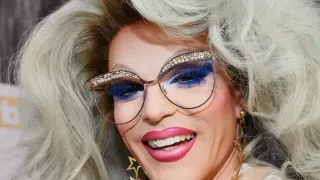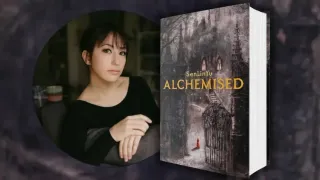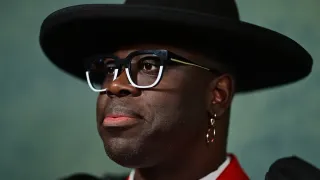
5 hours ago
King Princess Calls JK Rowling a "Demon," Affirms Harry Potter as "Very Queer" in Latest Interview
READ TIME: 3 MIN.
In a candid interview with The Irish Times published this week, acclaimed LGBTQ+ musician King Princess—whose real name is Mikaela Mullaney Straus—did not mince words when discussing the legacy of JK Rowling and the enduring cultural significance of the Harry Potter franchise. Straus, who identifies as genderqueer and uses she/they pronouns, stated unequivocally, "Harry Potter is very queer," referencing the series' central themes of choice, difference, and the formation of chosen family as resonant with LGBTQ+ experiences .
Straus elaborated, "It’s about choice and difference and finding your community and chosen family. These are all very queer themes." The artist further asserted that the books champion autonomy and self-discovery—elements that she/they describe as "possibly the most trans thing I’ve ever heard" .
However, King Princess did not shy away from criticizing Rowling’s stance on transgender rights, which has come under significant scrutiny in recent years. "She wrote eight books about children having autonomy and the ability to make their own choices… all she had to do was shut the f**k up," Straus said, calling Rowling a "demon of a woman" for what she/they described as the author’s "spitting in the space of fandom" .
JK Rowling’s public statements on transgender issues have created deep divisions within the Harry Potter fandom and the wider public. Described variously as a "trans-exclusionary radical feminist" by critics and a victim of cancel culture by some supporters, Rowling’s views continue to generate significant controversy, particularly as the franchise expands with a new HBO television adaptation .
Rowling herself has stated that her views have not influenced the hiring or casting decisions for the upcoming series, which is currently in production. Nevertheless, more than 400 individuals in the UK’s film and television industry have signed a petition urging action against Rowling’s exclusionary rhetoric on trans rights . The HBO project’s casting and creative decisions have been closely watched, with debate over whether art can be separated from the artist taking center stage for families and fans .
Laurie Kramer, a professor of applied psychology at Northeastern University, suggests that now is an important moment for open dialogue between parents and children about values and representation. Kramer notes that Rowling’s beliefs "are not supportive to growing numbers of individuals in our society, and that’s problematic for many people," urging families to discuss the implications of engaging with the franchise .
King Princess’s remarks reflect a broader movement within the LGBTQ+ community to reclaim and reinterpret mainstream works through a queer lens, even as their creators face criticism for exclusionary views. The artist’s interpretation of Harry Potter as a story of "chosen family" aligns closely with longstanding LGBTQ+ themes of acceptance, identity, and resilience. For many, the series continues to offer a sense of belonging and empowerment, despite the controversy surrounding its author .
Other public figures within the Harry Potter universe have also weighed in. Miriam Margolyes, who played Professor Sprout in the film adaptations, recently commented that Rowling’s stance is "too harsh" on transgender people and emphasized the importance of kindness and support for the trans community .
These discussions are unfolding at a time when visibility and advocacy for transgender rights remain critical. Activists and allies continue to challenge exclusionary rhetoric and push for greater representation and understanding in media and society at large.
The tension between the creative work and the views of its creator remains a complex issue for fans and cultural commentators. For King Princess and many others, the act of reclaiming Harry Potter as a "queer story" is both a form of resistance and affirmation. It underscores the power of narrative to transcend the intentions of its author and speak to marginalized communities in ways that foster hope, joy, and solidarity.
As the debate around Rowling and Harry Potter persists, LGBTQ+ voices like King Princess’s are pivotal in shaping the future of fandom and cultural discourse. Their call to recognize queerness in beloved stories—and to hold creators accountable for their public positions—represents an ongoing struggle for inclusivity and respect in both artistic and social spaces .
King Princess’s new album, "Girl Violence", released September 12, continues to explore themes of gender, identity, and emotional complexity, with a UK and Ireland tour scheduled for later this year. The artist’s unapologetic stance and creative output remain a powerful force in contemporary LGBTQ+ culture, amplifying the call for authentic representation and community .






